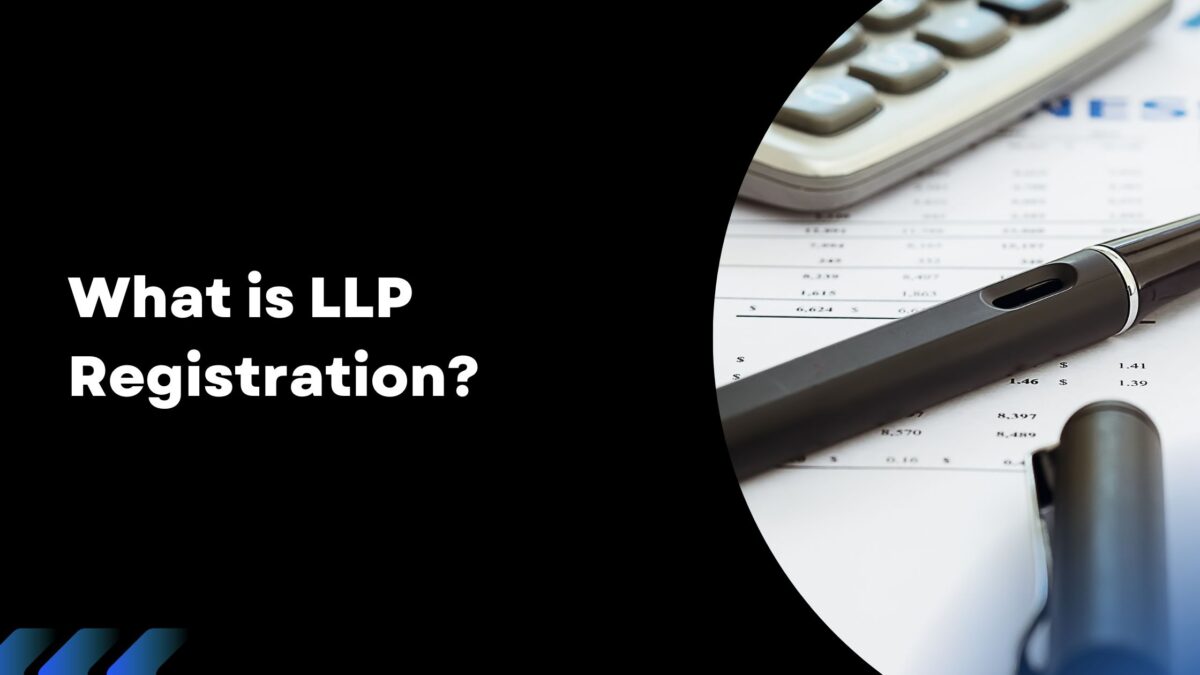What is LLP Registration? Read In Detail

Limited Liability Partnership (LLP) registration is a legal process that enables businesses to operate with limited liability protection while enjoying the flexibility of a partnership structure. LLPs have gained popularity among professionals, small businesses, and startups due to their unique features and benefits.
Advantages of LLP Registration
Limited Liability Protection
One of the primary benefits of LLP registration is the limited liability protection it offers to its partners. This means that the personal assets of the partners are safeguarded in the event of any legal liabilities or debts incurred by the LLP.
Separate Legal Entity
An LLP is considered a separate legal entity distinct from its partners. This means that the LLP can enter into contracts, own assets, and sue or be sued in its own name, providing a clear separation between personal and business liabilities.
Flexibility in Management
LLPs offer flexibility in management, allowing partners to run the business directly without the need for a formal board of directors or shareholders. This streamlined management structure facilitates quicker decision-making and operational efficiency.
Lower Compliance Requirements
Compared to companies, LLPs have lower compliance requirements, making them easier and more cost-effective to manage. There are fewer regulatory filings and statutory obligations, reducing the administrative burden on the partners.
Eligibility Criteria for LLP Registration
To register as an LLP, certain eligibility criteria must be met:
– Minimum Partners Required: At least two partners are required to form an LLP, with no maximum limit.
– Designated Partners: Every LLP must have at least two designated partners who are individuals, and at least one of them should be a resident of India.
– Registered Office: The LLP must have a registered office in India where all communications and notices can be sent.
Documents Required for LLP Registration
The following documents are required for LLP registration:
– Identity and Address Proof of Partners (PAN Card, Aadhaar Card, Passport, etc.)
– Partnership Deed outlining the rights and duties of partners
– PAN Card of the LLP
– Address Proof of the registered office (Electricity Bill, Rent Agreement, etc.)
Procedure for LLP Registration
The process of LLP registration involves the following steps:
- Name Reservation: Apply for the reservation of the LLP name through the LLP portal.
- Drafting LLP Agreement: Draft the LLP agreement outlining the rights, duties, and responsibilities of partners.
- Filing Incorporation Documents: Submit the required documents, including the LLP agreement, to the Registrar of Companies (ROC) for incorporation.
- Issuance of Certificate of Incorporation: Upon approval, the ROC will issue a Certificate of Incorporation, and the LLP will be deemed registered.
Cost Involved in LLP Registration
The cost of LLP registration includes government fees, professional fees for legal and consultancy services, and stamp duty on the LLP agreement. The total cost may vary depending on factors such as the capital contribution and location of the registered office.
Post-Incorporation Compliance for LLPs
After registration, LLPs must comply with various statutory and regulatory requirements, including:
– Annual Filings: Submitting annual returns and financial statements to the ROC.
– Income Tax Returns: Filing income tax returns with the Income Tax Department.
– Changes in Partners: Notifying the ROC about any changes in partners or designated partners.
Conclusion
LLP registration offers a flexible and efficient business structure with limited liability protection for partners. By understanding the eligibility criteria, procedure, and compliance requirements, entrepreneurs can make informed decisions and establish their LLPs successfully.
FAQs (Frequently Asked Questions)
- Can an LLP convert to a private limited company?
Yes, an LLP can convert to a private limited company by following the prescribed procedures and obtaining approval from the authorities.
- Is there a minimum capital requirement for LLP registration?
No, there is no minimum capital requirement for registering an LLP. Partners can contribute any amount of capital as per their agreement.
- What is the difference between an LLP and a partnership firm?
Unlike a traditional partnership firm, an LLP offers limited liability protection to its partners, ensuring that their personal assets are not at risk in case of business debts or liabilities.
- Can foreign nationals or entities register an LLP in India?
Yes, foreign nationals or entities can register an LLP in India subject to certain conditions and approvals as per the Foreign Exchange Management Act (FEMA).
- How long does it take to complete LLP registration?
The timeline for LLP registration typically ranges from 15 to 30 days, depending on the efficiency of document preparation and approval processes.







